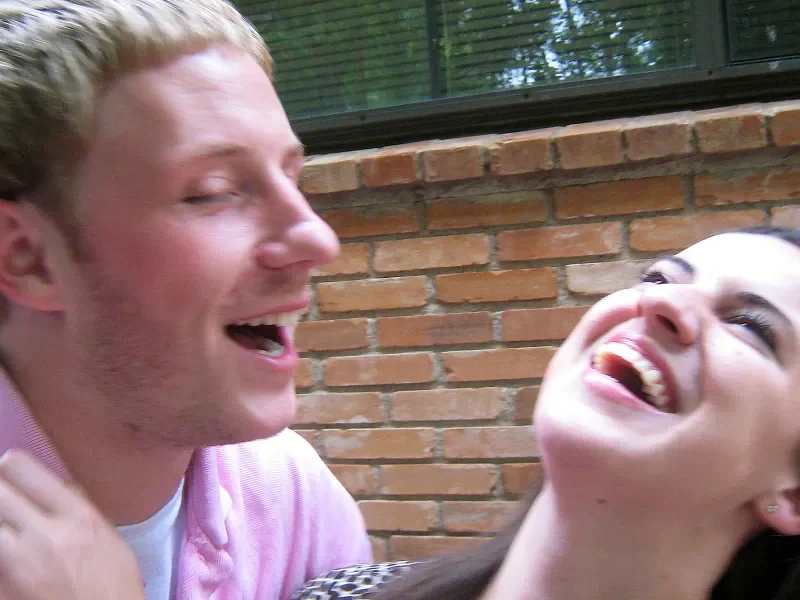When Melissa agrees to become a surrogate to help her husband’s struggling mother, she believes it’s a sacrifice made for love. But as the lines between devotion and exploitation blur, she’s forced to confront a devastating betrayal, and find out what it truly means to reclaim her future.
I didn’t realize I was selling my body until the check cleared. And even then, I told myself it was love. Because that’s how deep the lie ran.
My husband, Ethan, didn’t hold a gun to my head. He just held my hand while I signed the surrogacy papers; he just told me that we were doing it for us. For our son.
But I didn’t know that we were doing it for his mother, drowning in debt she created.
By the time I realized I’d been used, I’d carried two babies that weren’t mine and lost everything that was.
Including him.
When Ethan and I got married, people said that we had it all figured out. We met in college — me finishing my nursing degree and him starting his MBA. By our mid-30s, we had a bright five-year-old son named Jacob, a small apartment, and a marriage that looked strong from the outside.
It felt strong, too. Until my mother-in-law started calling every night.
Ethan said that she was just “going through a rough patch” after his dad passed. But her rough patch became our drowning season. And every spare dollar disappeared into a house she couldn’t afford. Every canceled vacation, every quiet birthday, every “maybe next year” for our son was because of her.
And I kept quiet. Because love asks you to hold your tongue. Until it doesn’t.
I never fought Ethan on it. Marlene was his mother. And I understood loyalty. But after years of missing out, I started to wonder if we were still living our life, or hers.
Then, one night while I was folding laundry on the couch, my husband walked into the room. He stood there for a moment, watching me. His face was calm, almost too calm, the way it gets when he’s been rehearsing something in his head.
“I was talking to Mike at work,” he began, easing into the conversation like it was nothing. “And he mentioned that his cousin, Sharon, was a surrogate. She made about $60,000. Just like that. She just carried the baby and gave birth. That was it.”
“Okay… and?” I asked, still folding Jacob’s tiny jeans. I wasn’t sure if I’d even heard him correctly.
“Mel, if you did something like that, we could finally pay off Mom’s mortgage. We’d be done! There would be no more monthly panic sessions. We could finally move and start a fresh chapter. Do it for us. Do it for Jacob.”
“Ethan,” I began, my stomach already twisting into knots. “You’re not actually suggesting I carry someone else’s baby, are you?”
“Why not?” he asked. “You’ve had a healthy and easy pregnancy with Jacob. There were no complications at all. And think about it, Mel — it’s just nine months. One year of sacrifice, tops. And it would change everything for us. And… think about that family that desperately wants a child but cannot do it themselves.”
He always said us like it meant we. Like I was being invited into something like an equal. But in that moment, something shifted. My hands paused over a pair of socks and I turned to look at my husband.
“You mean, I’d do all the sacrificing, Ethan. And we’d both enjoy the reward?”
“Don’t be hasty, Mel,” he said, smiling the kind of smile you give someone you’ve already convinced to do something. “Think about it. You’re doing this for us. And for Jacob. And for Mom.”
I didn’t answer right away. I just stared at the folded clothes between us. Somewhere beneath the exhaustion and doubt, I still loved him.
And so I said yes.
The first pregnancy felt surreal. It was like I was borrowing someone else’s life. The intended parents — Brian and Lisa — were kind, respectful, and clear about boundaries. They checked in without hovering, sent thank-you cards and care packages after every appointment, and paid every invoice on time.
There was something comforting about their calmness. The couple didn’t just see me as a vessel for their baby, they saw me as a person.
To his credit, Ethan stepped up too. He made me smoothies in the morning and rubbed my feet at night. He handled Jacob’s bedtime stories without complaints and kept reassuring me.
“We’re doing something good, Mel. Something that matters.”
“You’re helping that family live their dreams.”
“Imagine if we didn’t have Jacob… you’re bringing joy to Brian and Lisa, Mel.”
For those nine months, I allowed myself to believe that we were in this together.
When the baby was born — a little boy, red-faced and wailing for the world to know he’d arrived — I watched Lisa cry as she held him for the first time. I had tears in my eyes too. Not because I wanted to keep him, but because I’d done something difficult and emotional, and I’d walked away with dignity.
We deposited the final payment a week later. The relief was real. For the first time in years, we weren’t living paycheck to paycheck. I caught Ethan humming while doing dishes. And I thought maybe, just maybe, he’d been right all along.
But that peace didn’t last long.
Three months later, as I was making dinner, my husband walked through the door holding a folded spreadsheet like it was some kind of treasure map. I was cutting vegetables while also watching Jacob color at the kitchen counter.
“If we do it one more time, Mel,” Ethan said, already smoothing the paper across the counter. “Then we can wipe it all out! Mom’s car loan, her credit cards, and even my dad’s funeral balance. It will all be done!”
I didn’t respond right away. A sharp, familiar ache pulsed deep in my pelvis. It came and went in waves — phantom pain, maybe. Or maybe it wasn’t phantom at all. Some days I still felt nausea out of nowhere, and now, I couldn’t tell if it was hormonal or just dread.
“You’re serious? Ethan?” I finally asked. “I’m still healing. My body hasn’t recovered. I haven’t recovered.”
“I’m not asking you to do it next week,” he said quickly, moving closer to me. “I just mean… think about it. If we get ahead of this debt, we can finally breathe. No more juggling bills. No more stress. We could finally go away on that beach holiday we’ve wanted.”
He smiled at me like he’d just offered me the world.
That night, we lay in bed with our backs almost touching. I couldn’t sleep. My body ached in strange, quiet places. The stretch marks along my stomach felt deeper than skin-deep. I could still feel the ghost of a contraction when I shifted too fast.
“You’re doing this for us, Mel,” Ethan whispered, his voice a soft thread in the dark. “For our future and for my mom’s peace of mind.”
I stared up at the ceiling. The fan creaked overhead. Something inside me clenched — something quiet and knowing.
And I said yes. Again.
The second pregnancy was almost a year later, and unraveled me in ways I didn’t expect.
Everything felt heavier. My back throbbed by noon most days, and the swelling in my legs made walking feel like moving through wet cement. Some nights I lay awake for hours while Ethan snored in the next room.
He had started sleeping in the guest room “to get better rest.” That’s what he told me the first time he grabbed a pillow and walked out. I tried to understand, but the space between us only grew wider.
“Can you help me out of the tub?” I called to him one evening from the bathroom.
“You said you were okay with this, Melissa,” he said, frowning in the doorway. “Don’t make me feel guilty for something you agreed to.”
I said nothing. I just reached for a towel and pulled myself up as slowly and carefully as I could. I winced at the dull ache in my lower belly. I had no energy left to argue.
Still, I went to every appointment. I kept myself as healthy as I possibly could. I carried the baby like it was my responsibility alone.
And when she was born — little Hazel, with thick dark hair and a cry that filled the room — I placed her gently into her mother’s arms and turned away before the tears could fall.
The next morning, Ethan checked our account. The final payment had cleared.
“It’s done,” he said, his tone flat but satisfied. “Mom’s house is paid off. We’re finally free.”
I thought we meant both of us. He didn’t.
A month later, Ethan came home early. I was sitting on the floor with Jacob, “Sesame Street” murmuring in the background. My husband stood in the doorway with a look I couldn’t read.
“I can’t do this anymore,” he said quietly.
“Do what?”
“This. You. Everything,” he said. “I’m just not attracted to you anymore. You’ve changed. You let yourself go.”
At first, I thought it was a joke. But he was already grabbing a suitcase from the hallway cupboard. He said he needed to “find himself.” He said that he’d “still be there for Jacob,” but he couldn’t stay in a life that felt like an anchor around his neck.
And just like that, the man I had sacrificed my body for — twice — walked out of our home.
I cried for weeks. I could barely look in the mirror. My stretch marks felt like evidence of failure. My body felt foreign. And the worst part? I didn’t just feel abandoned — I felt used.
But I still had Jacob. And that was enough to make me get up every morning.
Eventually, after the alimony just wasn’t enough to make ends meet, I took a job at a local women’s health clinic. The hours were flexible, and the work gave me something I hadn’t felt in a long time — purpose. I wasn’t just someone’s mother or someone’s ex-wife.
I was helping women feel seen and heard. And in a strange, unexpected way, it helped me start healing, too.
I started therapy, almost reluctantly. I journaled at night after Jacob went to sleep, pouring every ache and unanswered question on paper. Grief didn’t leave in waves — it leaked out slowly. In the way I folded laundry. In the way I avoided mirrors.
And in the way I couldn’t step foot in our old bedroom without my throat tightening.
Then, one afternoon while I was restocking prenatal vitamins at work, my phone buzzed.
It was Jamie, a friend from Ethan’s office who always had a talent for knowing everything before anyone else.
“Mel! You won’t believe what happened,” she said, barely containing her laughter. “HR finally caught wind of what Ethan did. Leaving his wife after two surrogacies? It got around fast. And they’ve been questioning his character. He’s been dismissed.”
“Wait, seriously?” I asked, frowning. “They actually fired him?”
“Yes, it wrecked his reputation. And once he knew that people were aware of his actions… he started slipping up at work. It was grounds for being fired. And, that’s not even the best part,” Jamie added. “He tried dating that new girl in marketing. You know, the one we laughed at during the Christmas party?”
“Well, she was showing everyone her beach selfies,” I said, almost laughing at the memory.
“Anyway, she blocked him. And she’s telling everyone how toxic he is. Everyone knows it. Oh… and Mel?”
“Yes?” I asked, afraid of what she’d say next.
“He moved back in with his mom. That was the address he gave for his things to be sent over,” Jamie said.
For a second, I didn’t know what to say. The weight of everything he’d put me through sat heavy in my chest. But under it, something else flickered. It wasn’t joy or even revenge.
It was relief.
Jamie messaged me a photo a few weeks later. It was of Ethan at Target — unshaven and wearing a threadbare hoodie. His face looked older and bloated somehow. Even his eyes seemed dull.
Not long after that, at a postnatal checkup, a kind nutritionist named Dr. Lewis gently took me under her wing.
“Melissa,” she said. “Have you ever thought about working with someone to rebalance your hormones?”
“No,” I said, shaking my head. “I guess I didn’t know I had the option.”
“No pressure,” she said. “But you’ve given so much of your body to others. Maybe it’s time to come back to it.”
“Maybe it is,” I said, feeling something in me soften.
With her help, I began again. It started with slow walks, quiet meals, and clothes that fit instead of hiding. I was instructed not to use a scale. And soon, I started returning to myself.
Then came the call from Victoria — Hazel’s mother.
“You gave me a baby,” she said. “Melissa, let me take care of you, please. It’s not monetary, of course, but let me help. Please.”
Victoria owned a chain of high-end salons and insisted that I come in for a full day — hair, skincare treatments, new clothes, and nails.
“You don’t have to do that,” I said, trying to refuse. “You just enjoy your life with your gorgeous baby girl.”
“I want to,” she said firmly. “You deserve it.”
A week later, standing in that salon, watching the stylist work, I barely recognized the woman staring back at me.
But I liked her. She looked strong. Not just surviving, but rising.
That new confidence began to touch everything in my life.
At first, I started posting on social media as a kind of personal journal — just small updates about recovery, motherhood, body image, and what it really felt like to reclaim your body after giving it away so many times.
I thought maybe a few women would read it. But then people started commenting. They shared the posts. They tagged friends.
I wasn’t writing from a place of bitterness. I was writing from truth. I didn’t sugarcoat anything. I talked about surrogacy. And about love that disguises itself as control.
I wrote about what it feels like to give every part of yourself to someone who turns around and says it still wasn’t enough.
Eventually, what I called my “Fit Mom Diary” became a small but powerful community. Podcasts invited me to speak with them; a few wellness brands even reached out to me. I started a support group for mothers who’d been emotionally or financially exploited in the name of family.
And for the first time, I wasn’t Ethan’s wife, Marlene’s daughter-in-law, or Jacob’s mom.
I was Melissa — whole, unapologetic, and unbroken.
Jacob and I live in a bright new apartment now. My support group grows every week. And every time I tell my story, I tell the truth. I don’t regret any of it — I gave two families babies that they desperately wanted.
And because of that, I’ve been able to rebuild. And now, I’m rising.


